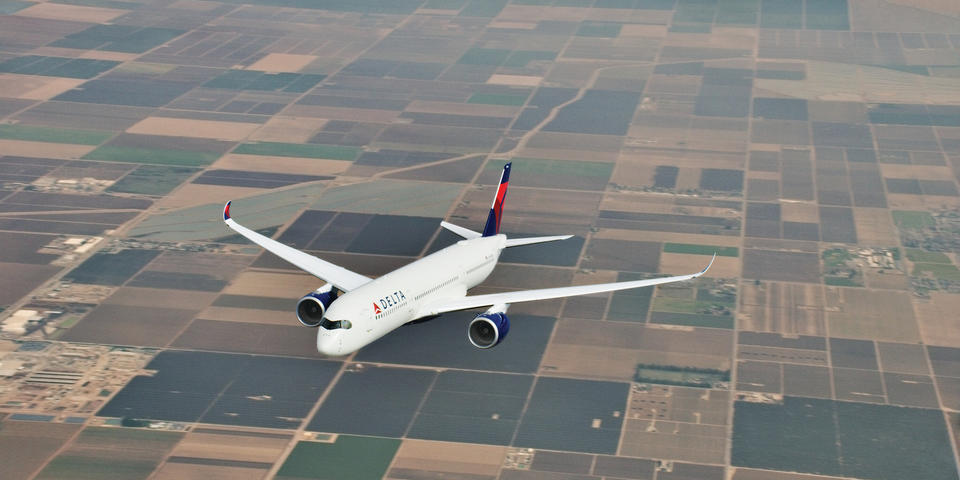Delta leads diverse coalition to harness the economic power of sustainable aviation fuel (SAF)
A transformative initiative has taken flight with the formation of Americans for Clean Aviation Fuels, of which Delta is a founding member.

A transformative initiative has taken flight with the formation of Americans for Clean Aviation Fuels, of which Delta is a founding member. ACAF is a diverse coalition of the largest industrial sectors in America from farmers to fuel producers and aviation to agribusiness focused on promoting the economic benefits of building a robust market for SAF and clean aviation fuels. Founding members include Delta, Airbus, Corteva Agriscience, Exxon Mobil, Growth Energy, National Business Aviation Association and the Midwest Soybean Collaborative (including Indiana, Iowa, Missouri and Ohio Soybean Associations).
“Building up the market for SAF and other clean aviation fuels has benefits that reach far beyond their important climate and environmental footprint,” said Cherie Wilson, Delta V.P. of Government Affairs- Sustainability. “Widescale SAF production can become the fuel that helps power America’s economic engine by creating good-paying jobs in the agricultural, feedstock production, energy generation, construction, and manufacturing sectors.”
In a recent report from the Air Transport Action Group
SAF is the most promising lever known today to accelerate progress toward a net zero future – it can use the existing fuel infrastructure to get it to airports and is safe to use in current aircraft engines. Importantly, the use of SAF can reduce life-cycle emissions by up to 80%, with the potential for greater emissions reductions using regenerative agricultural practices, on-site renewables, and other practices.
Unfortunately, there isn’t enough SAF today to fuel the world’s commercial airlines for even a single day and it is currently 2 to 4 times more expensive than conventional jet fuel. In addition to investing in SAF for our own fleet, Delta continues to develop and form important partnerships and coalitions across industries to signal demand, attract investment and advocate for policy incentives to scale the SAF market.
“Delta is proud to be a founding member of ACAF as we work to promote the clear benefits of utilizing SAF, not just for our own industry and business, but for the promising effects it will have on rural communities and our domestic energy security,” said Wilson.
Delta Global Sustainability and Fuel teams have been working over the past several years to catalyze investment and stimulate SAF production by signing what’s known as offtake agreements with various SAF producers. These agreements guarantee that Delta will purchase SAF from the producer when they have it, subject to certain conditions. To date, Delta has signed offtake agreements for more than 200 million gallons of SAF, which puts us more than half-way toward our goal of using 10% SAF for flying by the end of 2030.* Delta’s long-term goal is to reach net zero by 2050.
*Subject to timely third-party financing and facility development.
© 2025 Delta Air Lines, Inc.